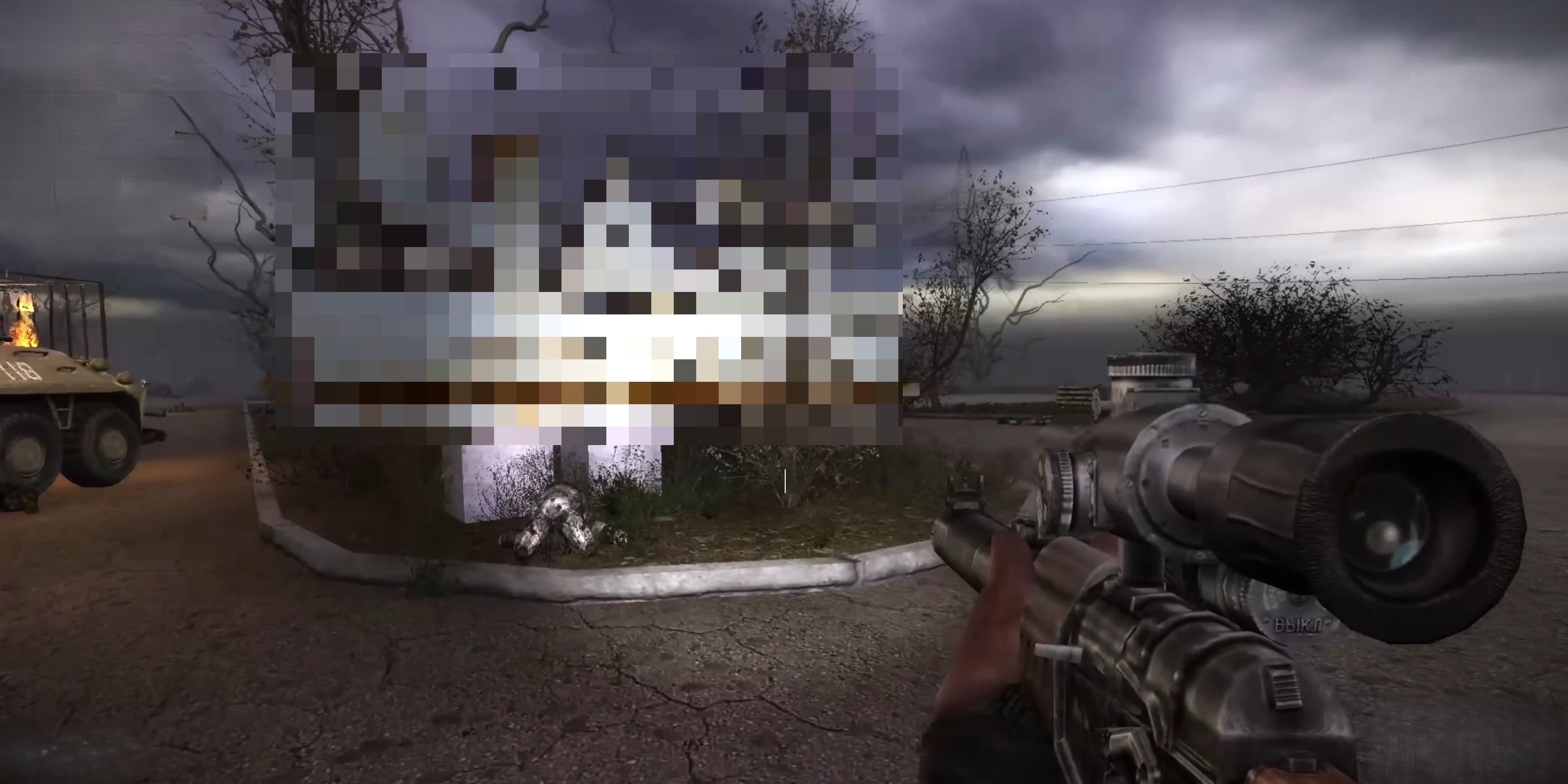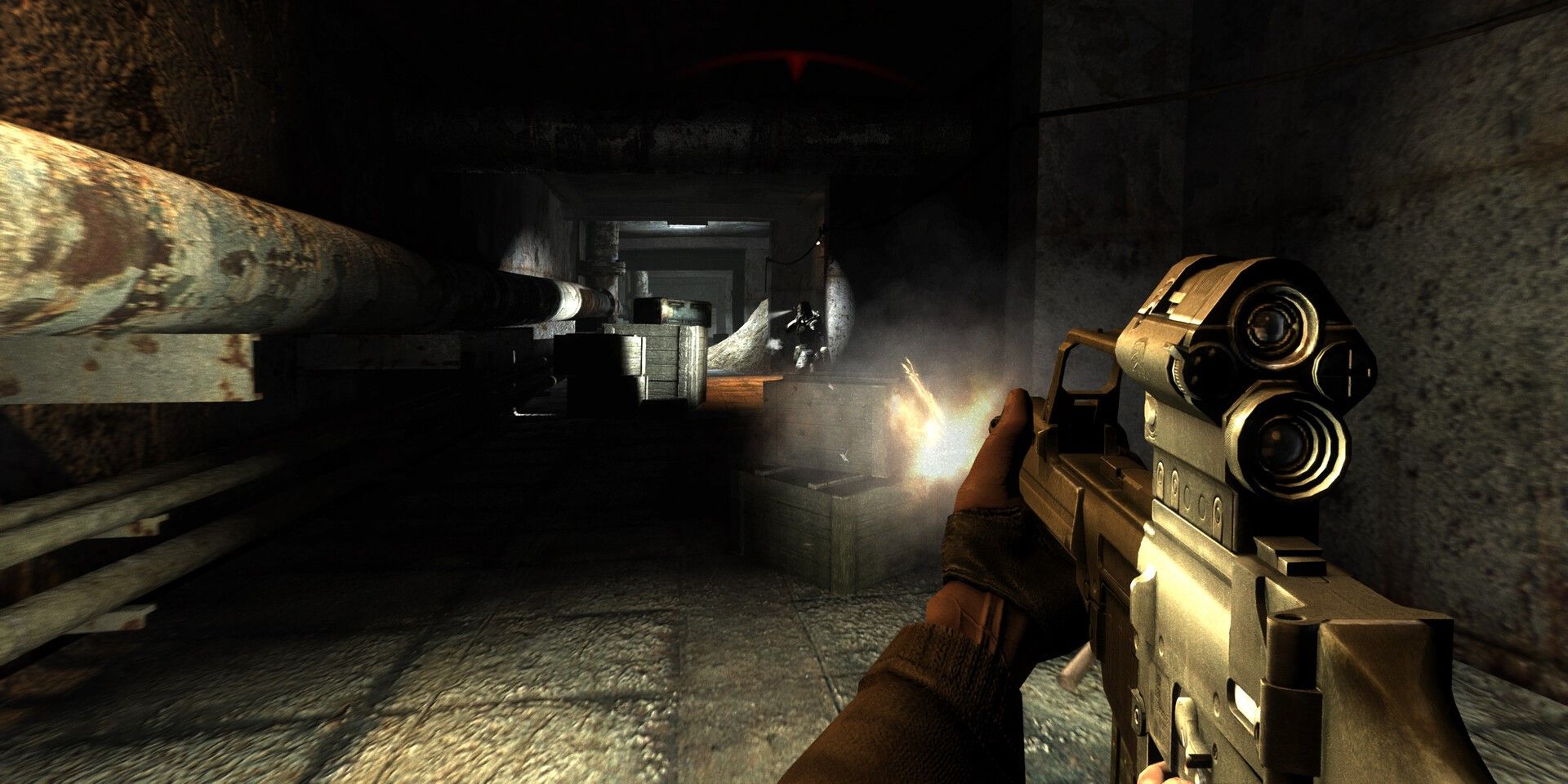
Following a challenging debut that garnered mixed critiques, it seemed as though an updated version of STALKER 2 was poised to restore GSC Game World’s reputation. Regrettably, that positive momentum appears to have met a similar fate as Chernobyl Nuclear Power Plant’s Reactor 4 after the launch of the STALKER Enhanced Edition trilogy on Steam.
Although the remastered trilogy is marketed as an “amplified, improved must-play experience for a modern audience,” longtime STALKER players have discovered it seems more appealing to mutants instead. This sentiment is echoed across player forums and social media platforms, with most rejecting the enhanced edition.
However, given the impressive initial reception of the Legends of the Zone trilogy’s first installment on various platforms like the Nintendo Switch, one might wonder what factors could have led to potential difficulties for GSC Game World.
Upscaled Revisionism

The original STALKER trilogy spanned from 2007 to 2010. Even the most sentimental fan would agree that the games, particularly the first one, were somewhat disorganized and full of design choices that left players confused at times, with occasional glitches added in for good measure. This charming chaos is a characteristic that the series has become known for. It paved the way for other challenging Eastern European releases like Escape From Tarkov, but let’s save that discussion for another time.
Following the closure of the studio responsible for STALKER in 2011, it was the fans who took charge of the game. The modding community flourished, with teams from Ukraine and Russia taking on most of the work and ensuring the series continued, until the debut of STALKER 2.
Despite more than a decade of modifications, it was impossible for GSC Game World to satisfy everyone. However, when the STALKER Enhanced Editions were released, players worldwide were taken aback as they found these new editions actually worsened the game compared to its original versions.
The major problem I see with this game is that it appears noticeably less visually appealing, as if the player characters have been affected by some sort of intense, game-induced cataracts.
In many cases of lazy remakes, GSC heavily relied on AI scaling for all game elements, which resulted in the originally sharp graphics appearing blurry and indistinct. This problem is particularly noticeable on stationary assets, where the distinctive scan lines now appear smeared, due to being mistakenly identified as watercolors by the upscaling tool employed.
In addition to focusing on technical aspects, the developers of the Enhanced Edition also made distinctive aesthetic decisions that have puzzled players. For instance, they chose to eliminate various Soviet symbols from the original STALKER trilogy, such as the renowned sign at the entrance of the Chernobyl Nuclear Power Plant.
As a devoted fan, I must admit that the Enhanced Edition made a significant change by eliminating the Russian voiceovers, which were the preferred choice among players back when the game initially launched, particularly in the Kyiv region where they’re quite common in everyday speech. However, it seems that numerous Soviet-era signs and posters in Russian were completely taken out, but unfortunately, their Ukrainian counterparts were never added to fill the void, leaving some environments feeling somewhat incomplete, much like STALKER 2 did not do so previously.
Regardless of portraying a significant villain symbolizing corruption and inefficiency within their ranks during the 2010s, the Ukrainian military was eliminated from the narrative altogether, swapped out for an unspecific force lacking a direct equivalent.
In essence, the Enhanced Edition of the STALKER trilogy originals appears to be a notable step back compared to the base games. Instead of maintaining the rich narrative critiquing the institutional flaws of the early Soviet government and the Ukrainian military, these updated versions seem to shift the storyline into a more empty context.
It’s unfair to downplay the monumental efforts made to transform both the government and the military since Ukraine gained its independence, by attributing constructive critique to Russian manipulation rather than genuine player discontent. Such an action casts GSC in a negative light.
Read More
- WCT PREDICTION. WCT cryptocurrency
- PI PREDICTION. PI cryptocurrency
- The Battle Royale That Started It All Has Never Been More Profitable
- Has Unforgotten Season 6 Lost Sight of What Fans Loved Most?
- Royal Baby Alert: Princess Beatrice Welcomes Second Child!
- Michael Saylor’s Bitcoin Wisdom: A Tale of Uncertainty and Potential 🤷♂️📉🚀
- SUI’s price hits new ATH to flip LINK, TON, XLM, and SHIB – What next?
- SOL PREDICTION. SOL cryptocurrency
- Everything Jax Taylor & Brittany Cartwright Said About Their Breakup
- Jason Ritter Joins DC’s Lanterns (and May Be Tied to a Major Villain)
2025-05-21 17:22